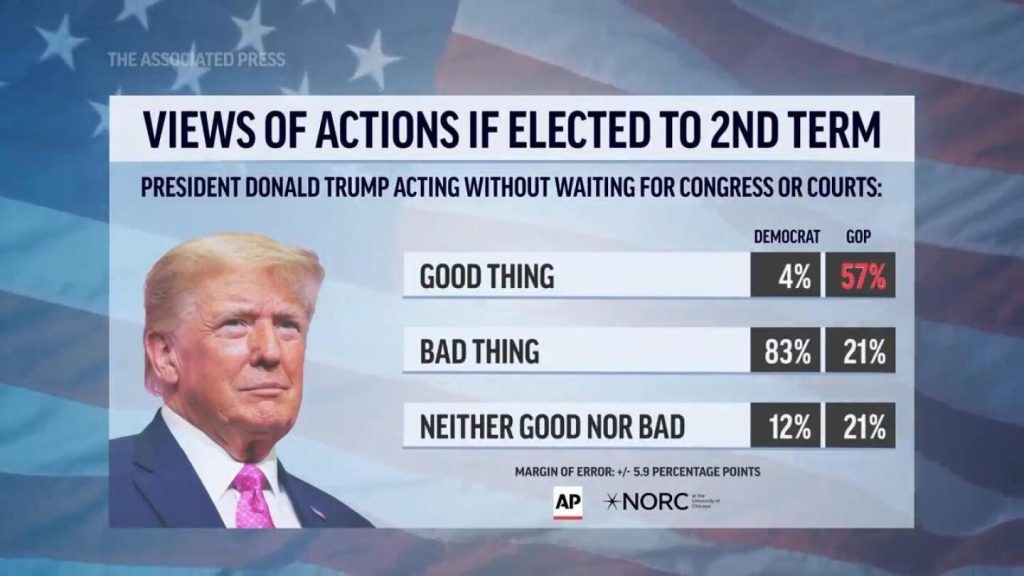A recent poll conducted by the Associated Press-NORC has revealed interesting insights into American attitudes towards presidential power and the Constitution. The poll found that while Americans generally value the Constitution’s system of checks and balances and do not want a president to have too much power, their views on this issue tend to shift depending on the political affiliation of the president in office. In other words, Americans are more likely to support limits on presidential power when the president is from the opposing party, but are less inclined to do so when the president is from their own party.
This shift in attitudes based on political affiliation highlights the extent to which partisanship influences public opinion on important issues such as the balance of power between branches of government. It suggests that Americans may prioritize loyalty to their party over consistent principles regarding constitutional governance. This phenomenon raises questions about the ability of voters to hold elected officials accountable for overreaching or abusing their power, regardless of their party affiliation.
The poll also found that a significant portion of Americans believe that the president has too much power, regardless of their party affiliation. This finding underscores the broader concern among Americans about the concentration of power in the executive branch and the potential threat to democratic norms and values. It suggests that there is a general sense of unease about the extent of presidential authority and the potential for abuse of power, regardless of who holds the office.
The results of this poll highlight the complex and often contradictory attitudes that Americans hold towards presidential power and the Constitution. While many Americans express a desire for limits on presidential authority, their views on this issue are heavily influenced by partisan considerations. This dynamic complicates efforts to strengthen the system of checks and balances and hold presidents accountable for their actions, as partisan loyalty often takes precedence over constitutional principles.
Ultimately, the findings of this poll raise important questions about the state of American democracy and the ability of the public to hold elected officials accountable. It suggests that partisan polarization and loyalty may be undermining the effectiveness of the constitutional safeguards designed to prevent the abuse of power. As such, it is essential for Americans to reflect on these findings and consider how they can prioritize the values of democracy and the rule of law over partisan interests in order to protect the integrity of the American political system.
In conclusion, the Associated Press-NORC poll sheds light on the complex relationship between Americans’ attitudes towards presidential power, the Constitution, and political partisanship. It reveals a nuanced and often contradictory set of beliefs among the public, highlighting the challenges of maintaining a healthy balance of power within the government. Moving forward, it will be crucial for Americans to grapple with these findings and consider how they can uphold the principles of democracy and the rule of law in the face of increasing partisan polarization.


